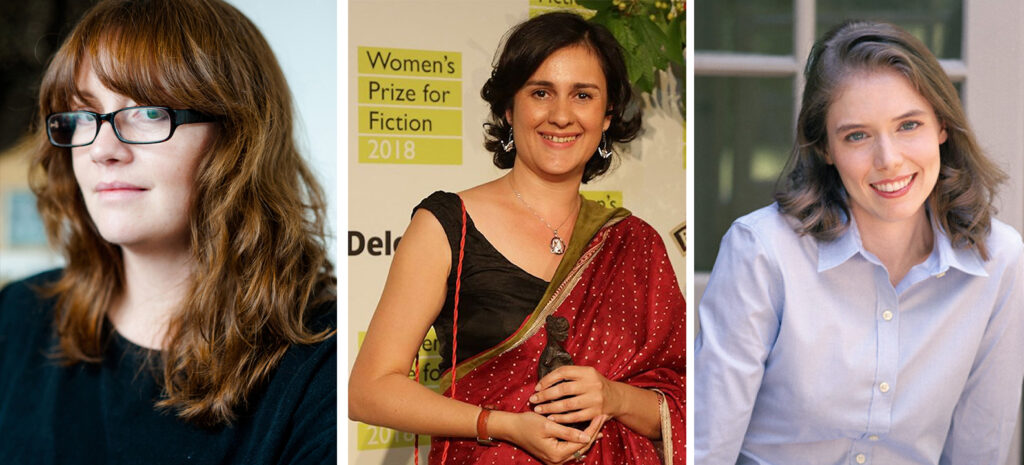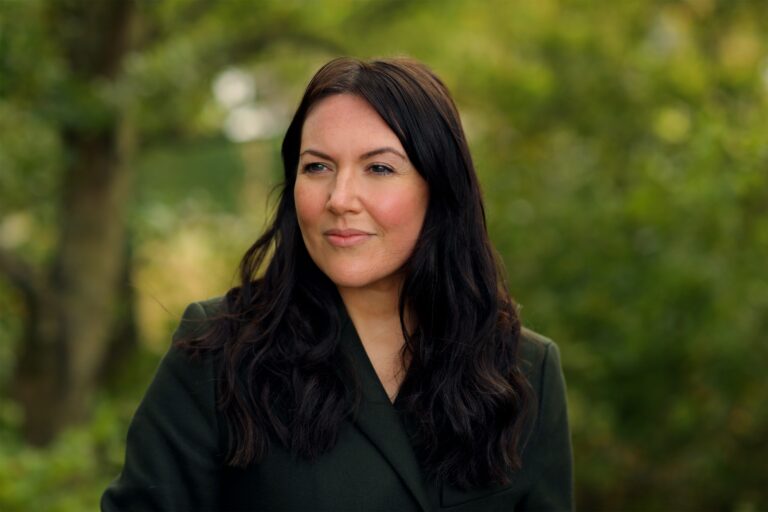From Eimear McBride to Kamila Shamsie, we asked previous Women’s Prize for Fiction winners what key tip they would give to others writing creatively.
Read on for valuable insights for anyone trying to be creative, but especially if you are entering Discoveries, our writing development programme. Our Discoveries programme is seeking the most talented and original new female writing voices in the UK and Ireland. To enter, submit the opening (up to) 10,000 words of your novel and a one-page synopsis of up to 1,000 words.
A M Homes (2013 winner with May We Be Forgiven)
‘Ask yourself what risk you are not taking and then take that risk. Push yourself to find what is true for your characters, what is left unsaid at the heart of the story you are wanting to tell. Experiment. Play. Make us laugh, and then make us cry.’
Valerie Martin (2003 winner with Property)
‘This is a tip given to me by Margaret Atwood. When you sit at the desk all morning looking at the page and you don’t write anything, that’s writing too.’
Lisa McInerney (2016 winner with The Glorious Heresies)
‘I think that this task is appointed for you, Frodo; and that if you do not find a way, no one will.’
You have a responsibility to the people in your head. If you don’t sit down and write their story, no one will, and it’ll stay in your head. Bullheadedness is what you need. Sit and write and get it told; you can worry about fixing it afterwards.’
Maggie O’Farrell (2020 winner with Hamnet)
‘What I wish I’d known when I was starting out, is that you don’t have to worry about beginnings. Don’t worry too much about knowing what you’re doing at the beginning. You can start in the middle if you want! Just put the words down.’
Kamila Shamsie (2018 winner with Home Fire)
‘Terrify yourself at least a little with every new project.’
Madeline Miller (2012 winner with The Song of Achilles)
‘Don’t expect the first draft to work, or the second, or the tenth. Writing is a deep dive. It’s so easy to want it be finished, but you need to be sure you’ve traveled the whole way. Sometimes that means throwing out material that’s perfectly well-written, except that it’s wrong for the story.’
Lionel Shriver (2005 winner with We Need to Talk About Kevin)
‘Write whatever you damned well want. Trying to please ends up pleasing no one, including yourself. And caution is boring. Especially in these touchy times, I suggest getting yourself into trouble. (That won’t be hard.)’
Téa Obreht (2011 winner with The Tiger’s Wife)
‘There are no wasted drafts. Writing can often feel quite Sisyphean—it’s baffling and disheartening to have less to show after a day’s work than you had before you started. But everything you throw away is just as valuable as everything you keep.’
Ann Patchett (2002 winner with Bel Canto)
‘My very favourite tip comes from my friend Elizabeth Gilbert in her book Big Magic. She says everyone says they want to write but they don’t have the time. Liz says you’d find the time if you were having an affair, even if it was just to grab fifteen
minutes in a dark hallway. I love that. Let writing be at least as important as an affair. Find the time.’
Anne Michaels (1997 winner with Fugitive Pieces)
‘Understand why you are writing, write towards that aim.’
Suzanne Berne (1999 winner with A Crime in the Neighbourhood)
‘A friend of mine once said, “Art is inefficient.” I find that statement very reassuring. Making something new is a crude business in the beginning. It usually takes many drafts before it can be anything close to elegant.’
Eimear McBride (2014 winner with A Girl is a Half-Formed Thing)
‘Don’t waste your time reading tips. If you’re any good it’s going to be hard so just accept that and get on with it.’
Put these tips in action and enter our Discoveries writing programme
Make sure you follow the @WomensPrize channels on Twitter, Instagram, Facebook and TikTok to get the latest Discoveries news and writing inspiration.








